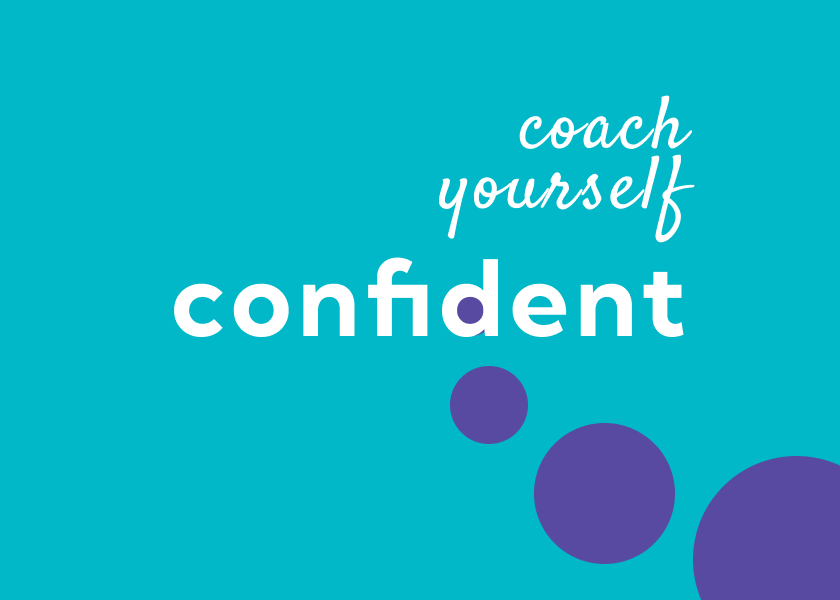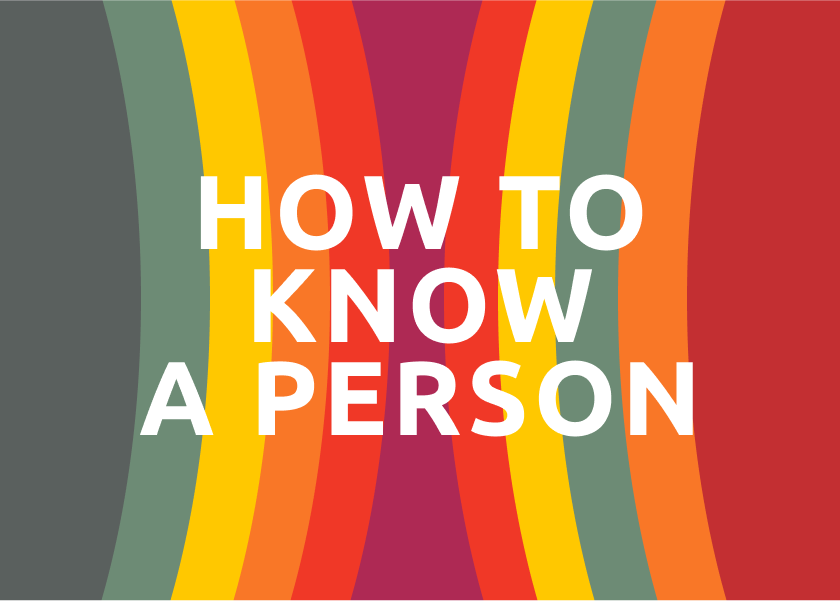Coach Yourself Confident by Julie Smith - Summary
Want to be more confident? Well, this book offers practical tools to tame self-doubt and build lasting self-trust. Start your journey to a more confident you today and fuel your life. Learn to trust yourself that you can handle whatever comes your way.

The following is a summary and review of the book Coach Yourself Confident by Julie Smith.
Unlock Your Inner Trust and Potential
Do you ever feel like your confidence doesn't quite match your capabilities? Do you find self-doubt holding you back from pursuing opportunities or truly believing in yourself? Coach Yourself Confident by Julie Smith offers a practical and insightful guide to navigating the landscape of your own confidence and building a more robust sense of self-trust. This book, written by an experienced executive coach, has resonated with many, from Netflix's Chief Talent Officer to marketing directors and Paralympians, who have found its accessible voice and actionable exercises to be invaluable. If you're looking to understand the roots of your self-doubt and cultivate a lasting sense of inner belief, delving into the wisdom within these pages could be a worthwhile investment. While this summary provides a comprehensive overview, the true power lies in engaging with the book's reflections and practices to tailor the journey to your own experiences.
Please note that this is a different Julie Smith than Dr Julie Smith, who wrote Why Has Nobody Told Me This Before.
Table of Contents
- About the Author
- Who Should Read This Book?
- Key Insights and Themes
- Detailed Summary
- Review
- Actionable Takeaways
- FAQs
- Conclusion
About the Author
Julie Smith is a highly regarded executive coach with three decades of experience. Her background includes over 15 years in corporate roles at Mars and PepsiCo, giving her first-hand insight into the demands of fast-paced organisations. In 2010, she established Talent Sprout, a leadership consultancy reflecting her passion for helping individuals and organisations flourish. Her coaching and consulting work focuses on empowering leaders to increase their impact and enabling teams to enhance their performance. "Coach Yourself Confident" draws upon her extensive experience to share practical strategies for building inner belief and resilience.
Who Should Read This Book?
This book is for anyone who desires to grow their confidence and tame their self-doubt. Whether you're a leader aiming for a more balanced self-view, someone early in their career, or an experienced professional navigating confidence peaks and troughs, Coach Yourself Confident offers valuable insights and tools. It's particularly beneficial for individuals who:
- Recognise that their confidence lags behind their capability.
- Experience the "self-doubt tax" of overwork, missed opportunities, or unfulfilled potential.
- Want to develop a more balanced and objective self-view.
- Are seeking practical exercises and reflection activities to understand and build their confidence.
- Are tired of borrowing confidence from others and want to cultivate a homegrown, sustainable self-belief.
- Are striving for self-fulfilment and want to overcome their inner critic.
Key Insights and Themes
Here are some of the key insights and themes explored in Coach Yourself Confident:
- Confidence is a trust in yourself that you will be okay whatever life throws at you, possessing the necessary resources to find a way through. It's a quiet, steady feeling of "I've got this".
- Self-doubt is normal but becomes an issue when it is over-sized, leading to a "self-doubt tax" of missed opportunities and overwork.
- Humble confidence, based on the mantra "I am good enough and I can be better," aligns our sense of capability with our actual skills and abilities.
- Growing confidence requires awareness of our patterns of thinking and self-doubt, and conscious practice of tools and techniques.
- Our inner critic can undermine our confidence with harsh commentary, and we need to create distance from its voice.
- The language we use can impact how we feel about ourselves and how others perceive us.
- Fear is a natural part of growth, and building confidence often requires feeling the fear and doing it anyway.
- Perfectionism can be a confidence saboteur, and embracing a "good enough" mindset can be liberating.
- Comparisonitis and the fear of other people's opinions can erode self-belief.
- Homegrown confidence comes from an internal belief in oneself, rather than relying on external validation or "borrowing" confidence from others.
- Giving yourself permission to be uniquely you, aligned with your values, is crucial for building lasting confidence.
Detailed Summary
Coach Yourself Confident is structured to guide readers through an exploration of confidence, self-doubt, and the journey towards building a more resilient sense of self-trust.
Introduction: How to coach yourself confident
The book begins by addressing the widespread desire for greater confidence and how coaching can be an effective way to achieve this. Smith emphasises that confidence is personal and about self-trust, something that only the individual can find. The book invites readers to look inward, understand how confidence and self-doubt manifest for them, and nurture self-trust. It highlights the two key ingredients for growing confidence: awareness through reflection, and practice of specific tools.
Fuel for life
This chapter explores the benefits of confidence, noting that while it doesn't guarantee success, it does stack the odds in your favour. It enables a willingness to say yes to opportunities and fosters the trust of others. The chapter also introduces the concept of the "momentum of confidence," where taking action fuels progress, which in turn fuels confidence. However, it acknowledges that fear, the inner critic, and a lack of perceived progress can interrupt this cycle. The importance of "feeling the fear and doing it anyway" is highlighted as a key aspect of building confidence. The chapter concludes with a REFLECTION: Your confidence aspiration, encouraging readers to define their current relationship with confidence and their goals for growth.
The self-doubt tax
This chapter delves into the downsides of excessive self-doubt, described as the "self-doubt tax". It explores how this tax is levied in missed opportunities, such as holding back, staying small, and slowing the pace through procrastination. It also examines how self-doubt contributes to overwork and exhaustion through achievement addiction, a hero complex, over-preparation, and emotional exhaustion. The chapter identifies common inner critic strategies and offers practical tools to keep self-doubt in check.
Homegrown confidence
This chapter introduces the concept of humble confidence, defined as a solid and balanced sense of self, grounded in reality and an objective perspective of one's capabilities. The humble confidence mantra – "I am good enough and I can be better" – is presented as a foundation for releasing the need to prove oneself while fostering a desire for growth. The chapter distinguishes between confidence by proxy and owned confidence, highlighting the dangers of over-reliance on others and people-pleasing. The importance of aligning actions with personal values is also discussed. The chapter concludes by acknowledging the paradox of pursuing humble confidence without making it another unattainable ideal.
Right-sized self-doubt
This chapter focuses on calibrating one's perception of capability to align more closely with reality, which is the essence of humble confidence. It explores the phenomenon of individuals who are experts in their field but still lack full self-trust. The chapter discusses how to navigate feedback through a filter, acknowledging valuable insights while resisting the urge to internalise all criticism as truth. It also examines the pitfalls of "should" statements and the tendency to take on unrealistic workloads. The chapter highlights the importance of a realistic understanding of one's capacity.
Confidence saboteurs
This chapter identifies common confidence saboteurs, those internal and external factors that can drain self-belief. These include the inner critic, comparisonitis, fear of other people’s opinions (FOPO), mindreading, perfectionism, and fear of failure. For each saboteur, the book offers insights into how it operates and practical strategies to counteract its negative impact. The chapter also encourages making friends with "good enough" to combat perfectionism and exploring worst-case scenarios to lessen the fear of failure. The crucial role of rest and recharge is also highlighted.
Bumps and knocks
This chapter addresses the inevitable setbacks and challenges that life brings and how they impact confidence. It introduces the "that so this" mindset, focusing on learning and growth from difficult experiences. The importance of keeping setbacks in perspective and avoiding pessimistic internal narratives is emphasised. The chapter also touches upon the situational nature of confidence, acknowledging that feelings of self-assurance can vary across different contexts.
Homegrown confidence
This final chapter focuses on cultivating a robust, internal belief in oneself. It explores the limitations of relying on external proxies for confidence, such as job titles, and the dangers of over-reliance on others for validation. The chapter encourages readers to move from borrowed confidence to owned confidence by understanding and utilising their support network effectively. It emphasises the importance of setting boundaries and saying no when necessary. The chapter culminates in the empowering message of giving yourself permission to be uniquely you, aligned with your values and your own definition of success.
Review
Coach Yourself Confident is a wonderfully written and accessible book that acts as a remarkable guide for anyone seeking to build their confidence. Julie Smith's corporate coaching experience shines through, offering powerful and practical ways to develop inner belief and resilience. The book's strength lies in its incisive and thought-provoking content combined with easy-to-read explanations and actionable exercises that encourage reflection and application. Readers consistently praise the author's accessible voice, feeling as though they have a personal coach by their side. The inclusion of real-life stories and references to external experts adds further depth and resonance. The book serves as a valuable "confidence workout" that readers will likely return to regularly. While the book is rich in practical advice, some readers might desire even more in-depth exploration of certain psychological concepts. However, its focus on practical application and its encouraging tone make it a must-read for anyone wanting to unlock their potential and tame their inner critic.
Actionable Takeaways
Here’s how to apply these lessons in real life:
- REFLECT on your confidence aspiration: Identify situations where you feel most and least confident, and define what greater confidence would look and feel like for you.
- PRACTICE keeping your distance from your inner critic: Recognise its common strategies and consciously separate its voice from your true self.
- MIND your language: Pay attention to the words you use, both internally and externally, and consider if they are building or diminishing your confidence.
- SETTLE yourself when feeling nervous by focusing on your breathing or using supportive touch.
- Complete a self-doubt tax return to understand the costs of excessive self-doubt in your life.
- Regularly engage in REFLECTION: I am good enough and REFLECTION: And I can be better to internalise the humble confidence mantra.
- OWN your strengths by reading them aloud and acknowledging their truth.
- Apply a feedback filter, being curious about feedback while comparing it to your own perspective.
- Conduct a reality check for "I should be able to get through it" beliefs by seeking another perspective or gathering data on your workload.
- Practice truth telling to challenge the assertions of your inner critic with evidence-based perspectives.
- Actively recognise that different does not equal better when comparing yourself to others.
- Get clear on good enough for specific pieces of work to combat perfectionism.
- Engage in the talk about failure club exercise to reframe your perspective on mistakes.
- Prioritise rest and recharge in its various forms to avoid burnout.
- Use your job application as a confidence builder by recognising and owning your achievements.
- Map your support network and actively tap into the different roles that supporters can play.
- Regularly reflect on how your values show up in your work.
- Give yourself permission to be uniquely you in all aspects of your life.
FAQs
- What is the core message of "Coach Yourself Confident"? "Coach Yourself Confident" aims to empower readers to build a sustainable and realistic sense of self-trust by understanding their patterns of self-doubt, challenging their inner critic, and adopting practical strategies for growth.
- Is "Coach Yourself Confident" a quick fix for low confidence? No, the book emphasises that building confidence is an ongoing process that requires awareness, reflection, and consistent practice. It offers tools and techniques for long-term development rather than immediate solutions.
- Does the book provide practical exercises? Yes, "Coach Yourself Confident" is crammed full of practical exercises and reflection activities designed to help readers understand and apply the concepts. These are highlighted in shaded boxes throughout the book.
- Is "Coach Yourself Confident" only for people in leadership roles? While the author has extensive experience in executive coaching, the principles and practices in "Coach Yourself Confident" are relevant to anyone who wants to grow their confidence and overcome self-doubt in any area of their life.
- How does "humble confidence" differ from simply being confident? Humble confidence, as presented in the book, is a balanced and grounded sense of self that aligns with one's actual skills and abilities, without inflating ego or diminishing self-doubt. It embraces the idea that "I am good enough and I can be better," fostering both self-acceptance and a drive for growth.
Conclusion
Coach Yourself Confident offers a valuable roadmap for anyone seeking to cultivate a deeper sense of self-trust and reduce the burden of self-doubt. Julie Smith's expert guidance, combined with practical exercises and relatable stories, empowers readers to embark on a journey of self-discovery and growth. By understanding the dynamics of confidence and self-doubt, challenging limiting beliefs, and implementing actionable strategies, you can begin to align your confidence with your capability and unlock your full potential. Remember that building confidence is a continuous process, and every small step you take contributes to significant growth over time. Embrace the journey, engage with the practices, and start coaching yourself confident today.
As an Amazon Associate, ShelfHelp may earn money from qualifying purchases. Needless to say, ShelfHelp only includes affiliate links to books we recommend and think are worth your time reading.




